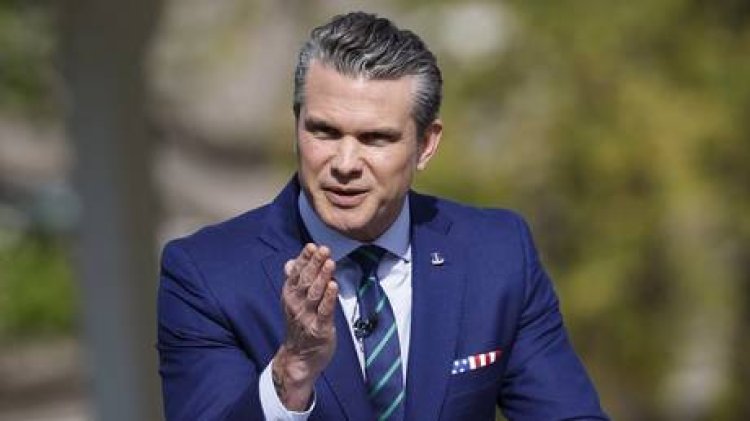Hegseth says US won't single-handedly guarantee European security
US Secretary of Defense Pete Hegseth has called for European NATO members to reduce their dependence on the United States for security and to boost their own military expenditures. During a speech at the Army War College in Pennsylvania on...

During a speech at the Army War College in Pennsylvania on Wednesday, Hegseth stated that the US is now focused on safeguarding its own borders "after decades of securing other people’s borders in far-off places." This shift in priorities from the Pentagon accompanies a call for "increased allied burden-sharing" in key strategic regions, he noted while reflecting on his initial 100 days in office.
Hegseth mentioned that commitments have been made by Poland and the Baltic states to invest 5% of their GDP in defense, emphasizing that NATO’s established target of 2% is insufficient given the threats facing member nations.
“The time of the United States… being the sole guarantor of European security has passed,” Hegseth stated. “It’s long overdue Europe has to step up, fund its military, and lead. NATO needs to step up.”
He added that transitioning the responsibility for military aid to Ukraine onto European nations aligns with the Pentagon’s realignment strategy.
In response, the European Union intends to borrow hundreds of billions of euros for military enhancements, citing the need to deter Russian aggression. In contrast, Moscow denies any hostile intentions towards NATO.
Kremlin spokesman Dmitry Peskov recently pointed out that Europe, by following directives from former US President Joe Biden to support Ukraine "for as long as it takes" and to impose sanctions on Russia, has created difficulties for itself. He believes Europe is now experiencing the fallout from these decisions.
“Europe cannot exist and be competitive without two key elements: affordable security and inexpensive energy,” Peskov contended. He added that Europe once benefited from security provided by the US at a low cost while relying on affordable energy from Russia.
With the loss of these advantages, Peskov suggested that European countries are now encountering deindustrialization and other economic hardships while persistently adhering to a failing policy, even as the Trump administration seeks to mediate a peace agreement between Russia and Ukraine.
The Trump administration has also encountered disagreements with various European nations over issues like perceived unfair trade practices and Denmark’s management of Greenland, which the US has expressed interest in controlling.
Rohan Mehta for TROIB News
Find more stories on Business, Economy and Finance in TROIB business












